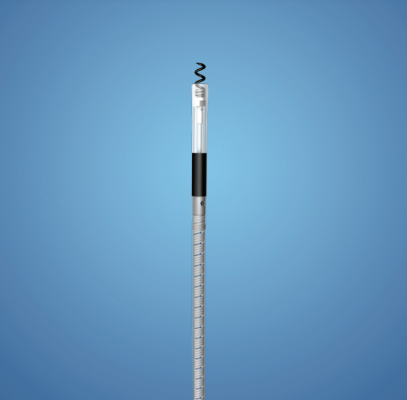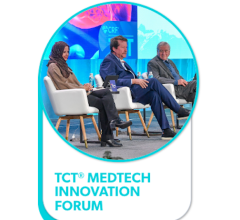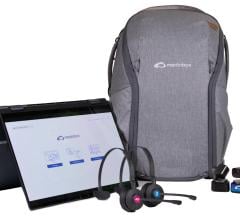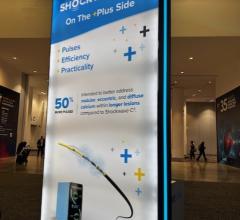
October 21, 2022 — Medtronic plc, a global leader in healthcare technology, today announced it has received U.S. Food and Drug Administration (FDA) approval for expanded labeling of a cardiac lead that taps into the heart’s natural electrical system, giving patients needed therapy while avoiding complications sometimes associated with traditional pacing methods, such as cardiomyopathy.1 Commonly referred to as “conduction system pacing,” this approach helps ensure that pacing closely mimics the heart’s physiologic contractions, allowing the heart’s ventricles to work in coordination.1
Medtronic is the first and only company with therapies approved for conduction system pacing. In 2018, the FDA approved the SelectSecure MRI SureScan Model 3830 cardiac lead for His-Bundle pacing, another form of conduction system pacing. Now this cardiac lead is approved for pacing and sensing at the bundle of His or in the left bundle branch area as an alternative to apical pacing in the right ventricle in a single- or dual-chamber pacing system. These implanted pulse generator systems help patients who experience slow heart rates (bradycardia).
This new approval adds to the Medtronic legacy of cardiac pacing innovative “firsts,” which include:
- The first leadless pacemaker (the Micra Transcatheter Pacing System, launched in 2016 and expanded to patients with AV block in 2020)
- The first pacemaker approved for use in MRIs (the Revo MRI SureScan pacing system launched in 2011), and
- The first wearable pacemaker invented by Medtronic founder Earl Bakken in 1957.
“Conduction system pacing is more like simulating natural activation and can yield positive outcomes for patients,” said Pugazhendhi Vijayaraman, M.D., F.H.R.S., director of electrophysiology at Geisinger Heart Institute in Wilkes-Barre, Pa. “This approval signals to physicians that the Model 3830 lead is safe and effective for patients for conduction system pacing, and it may encourage more physicians to learn the procedure.”
The SelectSecure Model 3830 lead received approval for left bundle branch area pacing based on real-world evidence showing high procedural success rates at 92%, and low procedural complication rates at 2.5%.2
Originally indicated in the U.S. for pacing and sensing in the atrium or right ventricle, the MR-conditional, steroid-eluting, bipolar SelectSecure Model 3830 lead has more than 20 years of proven performance and reliability. The expanded indication for left bundle branch area pacing was granted based on evidence from multiple sources spanning more than 20,000 treated patients.3 Now the SelectSecure Model 3830 lead is the first and only lead approved for conduction system pacing.
“Physicians are telling us about their excitement for the future of pacemakers, which will rely on conduction system and leadless pacing,” said Robert C. Kowal, M.D., Ph.D., general manager, Cardiac Pacing Therapies within the Cardiac Rhythm Management business, which is part of the Cardiovascular Portfolio at Medtronic, who joined Medtronic in 2017 after more than 17 years in electrophysiology practice. “Expanded labeling of this lead allows us to train physicians to successfully perform left bundle procedures, bringing the benefits of conduction system pacing to more patients.”
For more information: www.medtronic.com
References:
1 Padala SK and Ellenbogen KA. Card Electrophysiol Clin. 2021;13(4):755-84.
2 Ellenbogen KA, Fagan DH, Zimmerman P, et al. Left bundle branch area pacing using the 3830 lumenless lead: A systematic review and meta-analysis. Accepted at 15th Asia Pacific Heart Rhythm Society Scientific Session. 20 November 2022.
3 Medtronic data on file.


 October 31, 2025
October 31, 2025 









